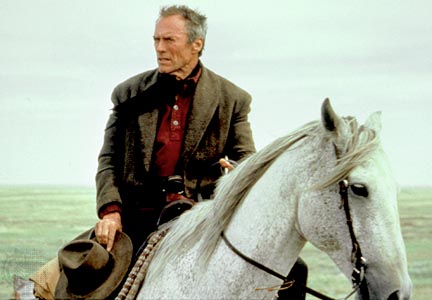Tuesday, January 10, 2012
Roll Tide!
Word of the day : mantic : of or relating to the faculty of divination; prophetic
Sweet Home, Alabama!
As promised, here are the first ten of what I call Charles Fischer's 200 Essential American Films.
(Note: I chose the films based on entertainment value first, historical and critical importance second, but I also considered timelessness, relevance, influence, appeal.)
- L.A. Confidential (1997, directed by Curtis Hanson)
One of the greatest films of the 1990s, a labyrinth of corruption, femme fatales glamorous big-city rot, crooked cops, hookers from Arizona, brilliant dialogue, and a cast for the ages. The film made stars of little-known Australian actors Russell Crowe and Guy Pearce, gave Kevin Spacey one of his best roles, won Kim Basinger an Oscar, and even found memorable parts for James Cromwell, Danny DeVito, and David Strathairn. A masterful script from the underrated Hanson and Brian Helgeland, from the novel by James Ellroy.
- Lost in Translation (2003, Sofia Coppola)
The film, which people either swoon over or are bored by, marked the arrival of a major directorial talent. Even if you don't fall for the film's dazzling evocation of bewilderment and displacement, and even if you don't really care what Bill Murray whispers in Scarlett Johansson's ear at the end, it's impossible not to be hypnotized by what has become something of an iconic Murray performance, deadpan and touching.
- Make Way For Tomorrow (1937, Leo McCarey)
See my post from two days ago.
- North by Northwest (1959, Alfred Hitchcock)
Where do we even start?
- "Roger O. Thornhill? What does the 'O' stand for?"
- "Nothing."
- "That's funny. That plane's dustin' crops where there ain't no crops."
- "When I was a little boy, I wouldn't even let my mother undress me."
- "Well, you're a big boy now."
One of the most entertaining movies ever made. And capped by off by one of the greatest sex jokes then seen in film.
- One Flew Over the Cuckoo's Nest (1975, Milos Forman)
Perhaps Jack Nicholson's definitive role. And one of only three films to win the big 5 Oscars: actor, actress (Louise Fletcher), director, screenplay, and picture.
- Psycho (1960, Alfred Hitchcock)
Whose list wouldn't this be on? Movies, especially horror movies, were never quite the same again. There perhaps is no figure in film so complex as Norman Bates. Critics have always hated the final scene, where the psychiatrist explains to use for five minutes about why and when Norman becomes mother. But to Hitchcock, who hadn't the slightest use for psychiatry, this was the ultimate joke, the great kiss-off to the whole profession: No way in the world could anyone begin to understand the psyche of Norman Bates. No way could anyone make his dilemma tidy. We were the crazy ones if we think we could.
- Schindler's List (1993, Steven Spielberg)
Not a fun film to watch by any means, but a profoundly important, personal one, a great director's finest achievement. Ralph Fiennes was truly terrifying as the desensitized SS officer and Liam Neeson was a tower of strength as Schindler.
- Sideways (2004, Alexander Payne)
Arguably the best romantic comedy of the new century, Payne's film gave us characters and plights we could all understand and relate to. The human comedy was very real, the performances fresh and invigorating (Paul Giamatti, Thomas Haden Church, Virginia Madsen, and Sandra Oh). A perfect mixture of laughs and sadness, a wonderful postcard of the dripping, lushly fresh northern California vineyards. Payne, adapting Rex Pickett's novel with Jim Taylor, always finds these under-the-radar novels (The Descendants, About Schmidt, Election) and mines them for gold.
- The Toy Story trilogy. (1995, 1999, 2010, John Lasseter)
I can't wait to watch these films with Gabriel one day. They're so smart and knowing, funny, with moments that stick in your throat. Technical achievements, yes, with dazzling voice work, yes, but any animated films that can make kids and adults laugh, gulp, and be moved at the same time, are works to be treasured.
- Unforgiven (1992, Clint Eastwood)
Clint Eastwood set out to make one final statement about violence in cinemas, violent men in general. This was it. He hasn't done a western since. No one did a western as good as this one since - I don't know, John Ford? The Searchers? This is a guy's movie, through and through. Oooh, that ending fires us up. Oooh, we hate Gene Hackman's Little Bill! We laugh when Clint tells Little Bill that the man he just gunned down should have armed himself! We too nod with satisfaction and recognition when Little Bill tells Eastwood's William Munny that he'll see him in hell.
Subscribe to:
Post Comments (Atom)




No comments:
Post a Comment